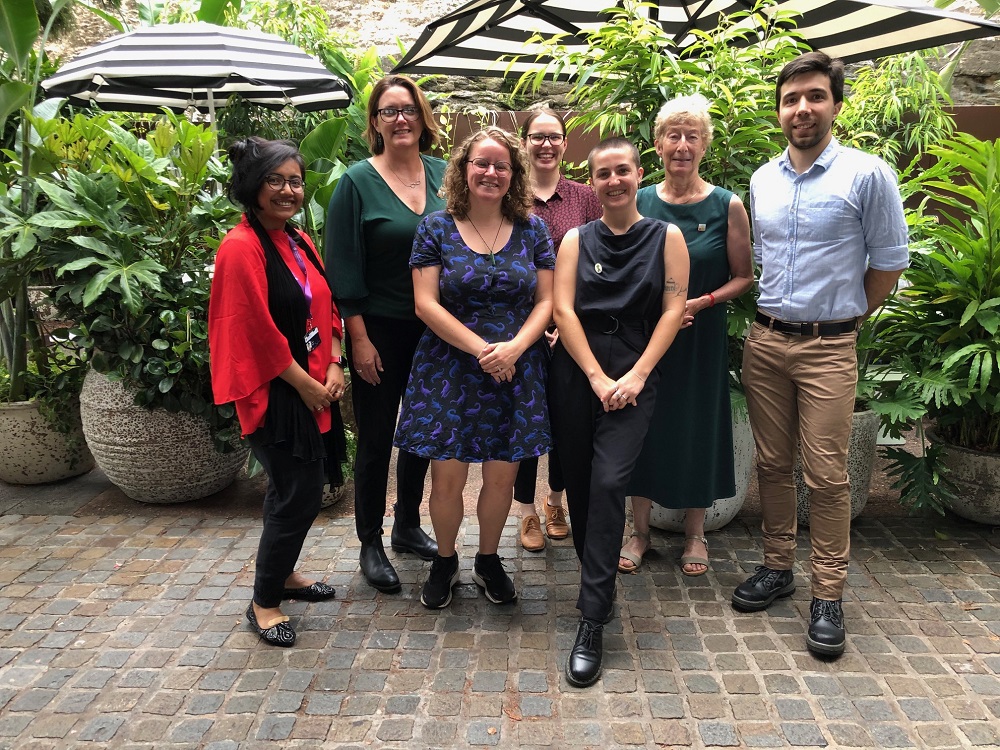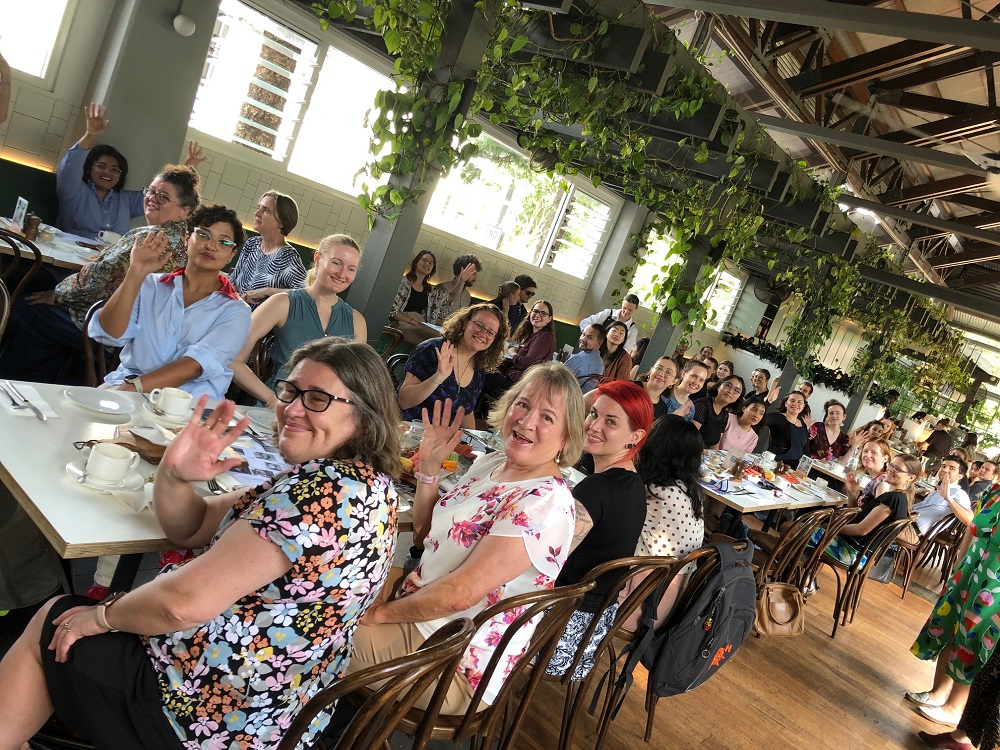
This Valentine’s Day, a series of global women’s breakfasts will bring women scientists together to network, share ideas, celebrate their accomplishments, and celebrate love.
The events are organised by The University of Queensland’s Emeritus Professor Mary Garson AM on behalf of the International Union of Pure and Applied Chemistry (IUPAC), and will be held in over 70 countries.
Professor Garson said the event will be hosted in 350 cities, hot off the heels of the UN Day of Women and Girls in Science on Saturday February 11.
“This Valentine’s Day, more than 30,000 women chemists will leap out of bed and go share breakfast with their chemistry friends – it’s become a really exciting day on the calendar,” Professor Garson said.
“This year we’re celebrating how love is chemistry – how the feelings of happiness and contentment can all be explained by chemistry and the subtle changes in our brain chemistry.
“So, it’s only appropriate that women from around the globe are getting together on Valentine’s Day to celebrate love, over coffee and some tasty treats.”
Since the launching of the Global Women’s Breakfast event series in 2015, over 95 countries have joined in to host events for women in chemistry.
One of the key talking points throughout the day will be issues around the gender gap in science, technology, engineering and mathematics (STEM) fields.
“While things are certainly improving in this area, a mountain of work still needs to be done to approach actual equality in this fields,” Professor Garson said.
“That’s why we’ll be exploring the topic of ‘breaking barriers in science’– another central theme on the day.
“As it stands, about 40 per cent of Australia’s science undergraduates are female, but data suggests less than 30 percent of our STEM workforce is female.

“We’ve made headway in this area in recent years, with modest improvements in Australia, but stronger action at home and abroad is still needed.
“In the end, it benefits us all by boosting productivity and creativity of our science-based workforce.”
If you’d like to know more about the International Union of Pure and Applied Chemistry and the Global Women’s Breakfast, head to their website.



